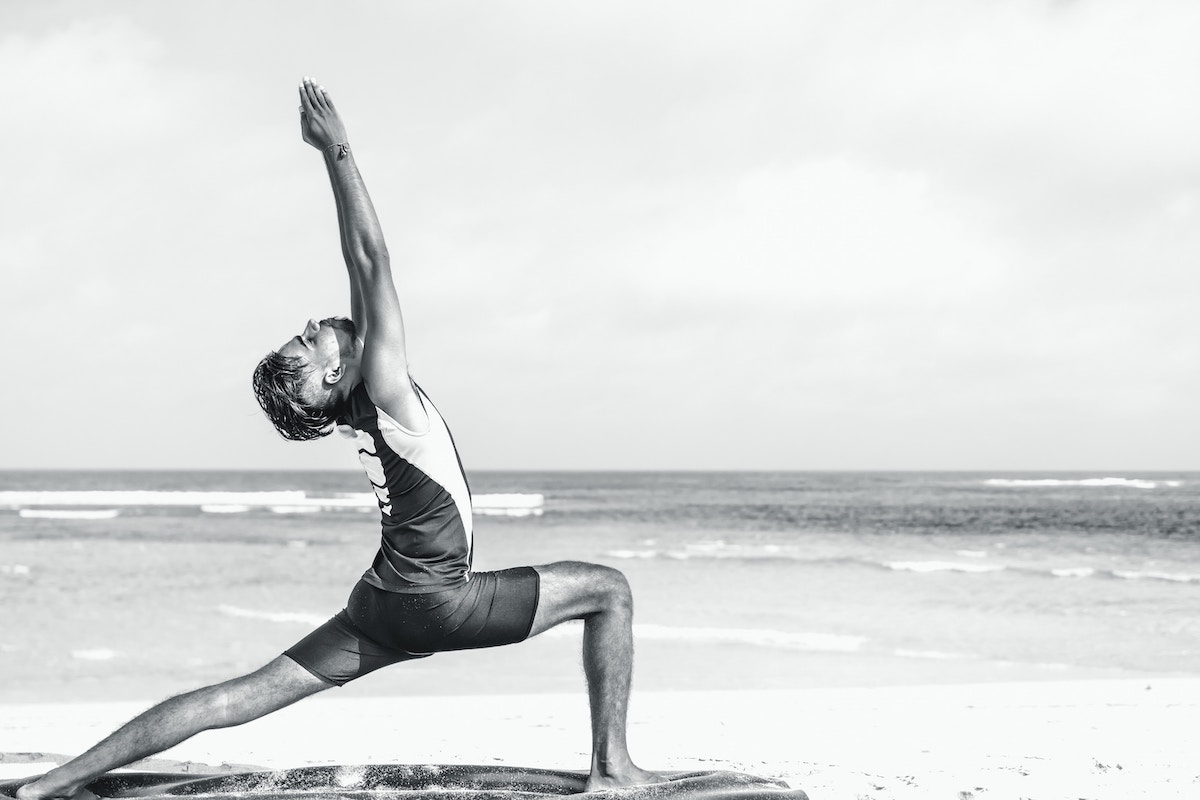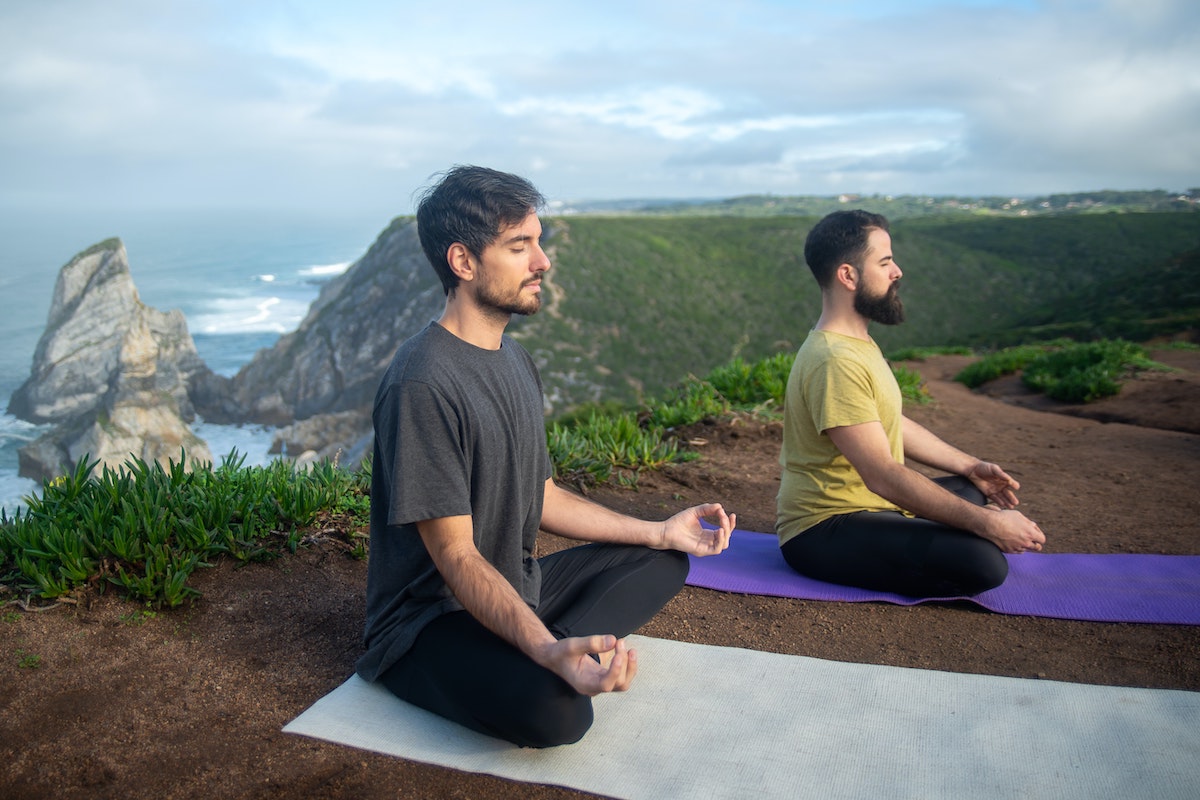
Studio fitness classes are a great way to combine working out and socializing. Exercising can be more fun when you’re powering through one last rep of burpees with your new friends. Not all fitness classes need to be high-intensity, though. Yoga and Pilates are two popular low-impact options . Besides being low-impact, both are lauded for improving posture, balance, and mobility. However, there are some key differences between the two disciplines. Knowing these distinctions can help you decide whether one or the other is the clear choice for you.

Yoga vs. Pilates: The basics
Before we deliver a verdict on the “yoga vs. Pilates” debate, let’s dig into what each exercise is about.
What is yoga?
Yoga has been around for centuries and likely originated in India. The ancient practice combines breath, meditation, and movement to connect the mind, body, and spirit. During a practice, people will pair poses with breath to move their bodies and center their minds.
Yoga comes in various types, including restorative, which leans heavily into the meditative aspects of a practice, power or hot, which emphasize strength and endurance. The type of yoga practiced also helps dictate how long someone holds poses and how intense a session is. Generally, yoga is hailed for having numerous benefits, including:
- Stress relief
- Anxiety management
- Pain reduction
- Improved mobility
- Better flexibility
- Improved sleep duration
- Increased muscle strength
- Improved quality of life
What is Pilates?
Developed in the early 20th century by Joseph Pilates to help injured dancers, Pilates is a full-body workout focusing on precise movement and mental concentration. The exercises don’t require big, sweeping movements, like a forward jump squat. Instead, you may watch someone do Pilates and wonder if they’re moving at all. Classic mat exercises like the hundreds require someone to lift their head off the ground and pump their arms, for instance.
Don’t be fooled — the small movements add up. Moreover, Pilates emphasizes drawing the belly button into the spine to engage the abdominal muscles. Only the person practicing Pilates knows if that is happening (and is feeling the burn).
Pilates boasts many benefits, including:
- Muscle toning, particularly the core
- Improved posture
- Muscular endurance
- More flexibility
- A reduction in joint pain
- Improved mental well-being
How are Pilates and yoga similar?
Yoga and Pilates have their share of differences. However, the two workouts offer some similarities. Both place a premium on breathwork, bringing mindfulness to movement and improving mental well-being on and off the mat. Each offers modified versions of exercises, making yoga and Pilates accessible to people of various fitness and experience levels. Both are beginner-friendly and low-impact, so either is often — but not always — considered a good fit for people cleared by their doctor to return to fitness. (Ask your doctor about the specific workout you plan to use for your comeback. Some injuries, like diastasis recti, may require you to lay off core work longer, even if cardio or gentle stretching is OK.)
What is the main difference between yoga and Pilates?
Generally speaking, Pilates is more focused on building strength, body control, and toning, while yoga emphasizes balance and flexibility. These concepts aren’t set in stone, however. For instance, power yoga certainly places a premium on muscular strength and endurance through quicker flows. However, you can typically expect yoga to be gentler.
Yoga also emphasizes spirituality as a way of finding peace and clarity. Instructors may take students through guided meditation, particularly during the final Savasana pose.

Pilates vs. yoga: The verdict
Which workout is better, Pilates or yoga? Is one harder than the other? These answers require some nuance. Here’s what to know.
Which is harder, yoga or Pilates?
Pilates is usually considered the more challenging of the two workouts because the exercises are focused on strength and endurance. Yoga emphasizes gentler stretches that bolster flexibility and balance. However, this answer depends on a few factors, including:
- The exercises in your yoga or Pilates practice
- The type of yoga you’re comparing Pilates to. For example, power or hot forms of yoga are known for being more challenging than slow-flow or restorative.
- How a person modifies their workout — a full plank in yoga is more intense than a modified one in Pilates.
Which is better, yoga or Pilates?
There’s no correct answer to this question. Yoga and Pilates both offer physical and mental benefits. The question should be, “Which is better for you, yoga or Pilates?” Ask yourself these follow-ups:
- Are you just returning from an injury or a long layoff from exercise? While either workout is likely OK, yoga is gentler.
- Are you looking to build core strength or toning? Pilates is probably a better choice.
- How much equipment do you want to use? Both workouts can be done using only body weight, but Pilates exercises often involve funkier equipment like Reformers. Yoga is a bit more accessible.
One more question: Do you actually want to choose? You don’t have to. Consider alternating between the two workouts, such as doing yoga on Mondays and Wednesdays and Pilates on Tuesdays and Thursdays. Working your muscles in different ways is a fantastic way to ward off injuries.



